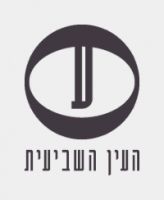Jews-only polls on matters relevant to the entire Israeli public and polls that present Jews-only polls as representing the views of the entire Israeli public constitute discrimination against the country’s Arab population, Israeli Press Council’s Ethics Court rules.
By Oren Persico

Excluding Israel’s Arab population from public opinion polls on matters of politics and policy is ethically unacceptable, according to a ruling by an appeals tribunal of the Israeli Press Council’s Ethics Court earlier this month. The ruling overturned an earlier decision that said publishing Jews-only public opinion polls on matters relevant to the entire Israeli public was ethically acceptable. It has long been common practice among mainstream Israeli media outlets to exclude Arab citizens of Israel from public opinion polls.
The Press Council’s Ethics Tribunal found Israel Hayom, the Israeli newspaper funded by Sheldon Adelson, and Ynet, the web version of the Yedioth Aharonot newspaper, to be in violation of the Press Council’s ethics code for publishing exclusionary opinion polls. The Council also ruled that both Israel Hayom and Ynet have a week to publicize their violations of the Council’s ethics code.
For over three years, the Seventh Eye has tracked the publication of “apartheid polls,” public opinion polls that represent the views of Jews only on matters relevant to the entire Israeli public. Following criticism of this practice, several major publications that previously published Jews-only polls — including Haaretz, Army Radio, Globes (a business paper), Channel 10 News, and Channel 2 News — agreed to cease publishing such polls, or to at least report on the polls in a way that makes it clear that they represent the views of solely the Jewish Israeli public. Other publications ignored the criticism and continued to publish Jews-only polls.
Roughly a year and a half ago, Yair Tarchitsky, chairman of the Israeli Union of Journalists and a member of the Press Council’s directorate, initiated a change in the Council’s ethics code to formally prohibit the publication of discriminatory polls in Israeli media outlets. Though the change was accepted by the Press Council in 2016, numerous outlets continued, nevertheless, to publish Jews-only polls. In response, attorney Elad Man, legal advisor to the NGO Hatzlaha and chairman of the Seventh Eye, filed a complaint with the Press Council against six media outlets that published Jews-only polls: the Adelson-funded Israel Hayom, Yedioth Aharonot, Basheva (a religious-nationalist tabloid), Maariv, and The Jerusalem Post.

Last December, the Press Council’s Ethics Court ruled against those publications, stating, “The fact that the views of an entire population are excluded from the public and journalistic discourse on a regular basis makes such exclusion more severe, unbearable, and demands intervention.” However, the Ethics Court added a condition stating, “as long as there is substantive justification for publishing a poll that represents the views of Jews only, there are no grounds to prevent a newspaper from publishing the poll.”
According to that first ruling, therefore, the publication of Jews-only polls on matters such as evacuating West Bank settlements or support for the two-state solution, was permitted because “the views of the Arab public are known.” This ruling applied to the ynet poll, which assessed support for the two-state solution and the Israel Hayom poll, which measured public support for pardoning Elor Azaria, the IDF soldier who shot an incapacitated Palestinian attacker in the head in Hebron. “These are political issues, on which the clear majority of Arabs are politically identified in a way that their views can be assumed,” the ruling stated. “It cannot be said that an attempt to understand the views of the Jewish public constitutes a form of exclusion or discrimination against the Arab public.”
The appeals tribunal reversed this decision. “The assumption that on particular matters the views of a specific public are ‘known’ or can be assumed constitutes an improper generalization that is likely to give free reign to stereotypes and preconceptions,” they stated in their ruling on the appeal. “We cannot easily assume the views of a particular public. This ruling [the first one] is fundamentally flawed and expresses a dangerous journalistic norm.”
With regards to the ethical prohibition on publishing discriminatory polls, the appeals tribunal sided with the earlier Court’s ruling. “We believe that the ethics code makes it loud and clear that journalistic freedom is not the freedom to publish things that discriminate against a particular group, community, or minority.”
“Thus,” the appeals tribunal’s ruling added, “the previous court was right when it ruled against publishing polls that routinely reflect the views of Jews only, instead of polling the opinions of the entire Israeli public. When a poll is relevant to the entire public, it should be conducted within the entire public. It is also our view, as the appellant claims, that polling the entire Israeli public does not preclude the presentation of [demographic] breakdowns to see the opinions of relevant groups.”
The ruling, however, did not create a complete ban on publishing Jews-only polls outright. It instead narrowed the acceptable justification for publishing such polls, ruling: “Justification for a Jews-only poll must be reasonable and responsible, relevant to the topic, and must not discriminate negatively against a particular group for non-practical reasons.”
On the question of whether newspapers whose intended audience is a particular segment of society must also publish polls that survey the entire, wider population, the appeals tribunal opted against a definitive ruling, leaving the question up for further debate.
The appeals tribunal’s decision made it clear that presenting the findings of a discriminatory poll as if they represent the entire population is a serious ethical violation. “Publishing a poll that surveys only a particular population as if it represents the views of the entire public, or giving a title to a poll that gives such an impression, even if the text of the article conveys a different impression, constitutes discrimination.”
“A statement that gives the sense that ‘the public’ or ‘Israelis’ does not include a particular segment of the population of Israeli citizens is especially outrageous,” the decision continued.
“The ruling speaks for itself,” attorney Man said following the ruling. “Even it comes a little late, it sets the record straight.”
A longer version of this article first appeared in Hebrew at The Seventh Eye. Read it here.

